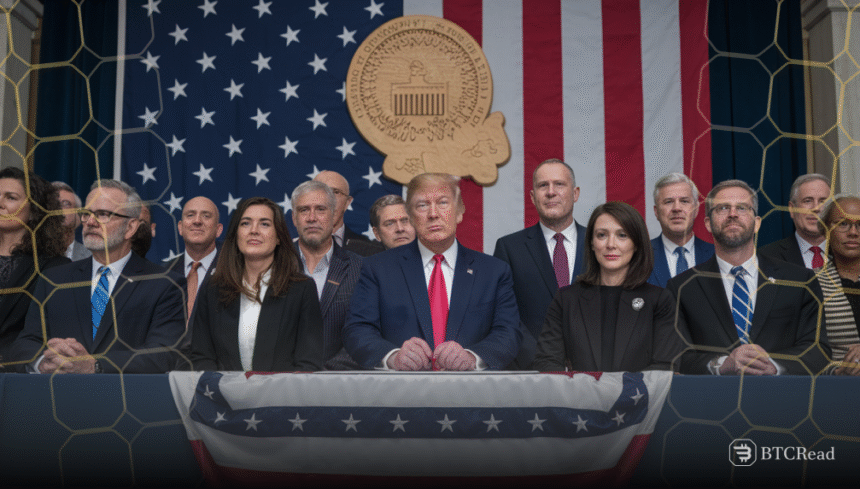A group of twelve U.S. states has filed a joint lawsuit contesting former President Donald Trump’s authority to impose sweeping tariffs on international imports without Congressional approval.
The suit, initiated in the United States Court of International Trade, asserts that Trump acted outside his legal authority by invoking a decades-old emergency powers statute to justify his tariff actions, which have disrupted global trade dynamics and triggered market instability.
States dispute the use of emergency powers for tariffs
Led by the state of New York, the coalition argues that Trump misused the International Emergency Economic Powers Act (IEEPA), a 1970s law originally intended for national security threats.
The lawsuit notes that the law allows a president to respond to extraordinary threats with foreign origins, but only after declaring a national emergency. According to the plaintiffs, Trump’s actions failed to meet the legal standards required by the IEEPA.
Legal filings indicate that no previous president has used the IEEPA to apply trade tariffs. Congressional research cited in the suit confirms this interpretation, further challenging the legal basis of Trump’s measures. The suit states that Trump imposed shifting and expansive tariffs on goods without proper legislative approval, which has caused disorder in the U.S. economy.
Tariffs spark legal, political, and economic responses
California separately filed a lawsuit last week, also disputing the administration’s application of the IEEPA to justify trade measures. Other legal challenges have followed similar arguments, questioning the legitimacy of emergency-based tariff powers. The Trump administration defended its stance, stating it was addressing threats posed by illegal border activities and a growing trade deficit.
White House spokesperson Kush Desai said the administration remained committed to using available legal tools. He pointed to national emergencies related to border control and drug trafficking as justification for the imposed levies. Desai also accused New York Attorney General Letitia James of pursuing political motives over constituent welfare.
In April, Trump announced reciprocal tariffs on several countries during an event labeled “Liberation Day.” He later reduced the rate to 10% for most nations and paused new measures for 90 days. China, however, faced a 145% tariff, following what Trump described as retaliation and disrespect from Beijing. The White House also placed 25% tariffs on selected imports from Mexico and Canada.







